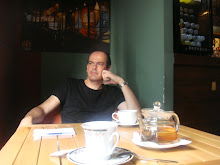Though Chinese architecture has a lot to offer, most of the cities are as dull as they could be. Each has it's highlights, some surpass the average, some overwhelm, but it's the exceptions that confirm the rule. So here is an excerpt I found that basically states what is wrong with chinese cities and where it originates:
"... The country had a long tradition of private gardens cultivated by gentry, and more recently of austere Stalinist-style parks designed to project state authority. But he felt the country needed more. "Landscape architects can't just be garden artists," says Yu. So, in 1998, he founded Turenscape, China's first private landscape-design firm, and set about finding places like Zhongshan where officials were willing to try something different.Turen is an odd name for a Chinese company. Ren means person, but tu is more complicated. Literally the word translates as "earth" or "soil," but it's often used as a slur, a put-down for anything that is backward or unsophisticated—the manners of a migrant worker, bad teeth, cloth shoes. When Yu's colleagues answer the phone, "Turen," it sounds like they're calling themselves bumpkins. Yu himself remembers being called tu when he arrived in Beijing from a rice farm in Zhejiang to enroll at the Beijing University of Forestry in 1980. He was 17, could barely speak Mandarin and was awestruck by the straightness of the city's poplar-lined roads. This "farmerist outlook," as Yu describes his own first impressions of Beijing, is the reason Chinese cities look the way they do: "We're a country of farmers. When we make it to the city we want to feel as far away from the land as possible. We hate weeds. We want to look up at tall buildings. We shun nature." To be truly urban, Yu says, China needs a new attitude toward tu."
Read the whole article on this remarkable guy over here.
I think all agrarian societies are going through the same process when they turn more urbanized, but Yu Kongjian's point clearly is that if Chinese cities want to become really innovative, it needs to come to grasps with it's roots. Yu is not pleading on an architectural level, he is attacking a mentality, a mentality that tries to shed it's roots and disguise into something it is not. Only when 土 will mean "earth" again and none of it's degrading variants, will there be place for a real healthy and sustainable urban development
I would say it's a fairly refreshing look that is being expressed here, refreshing for China at least, and it gives hope that one day we will not be seeing endless streets lined with white-tiled buildings with blue windows.








1 comment:
I was shocked when I found in this article that Yu found the first private landscape architecture firm in China in 1998. This is an absolute lying. In fact, before 1998, there were already many landscape architecture firms. How comes Yu claimed that shamelessly?
Post a Comment